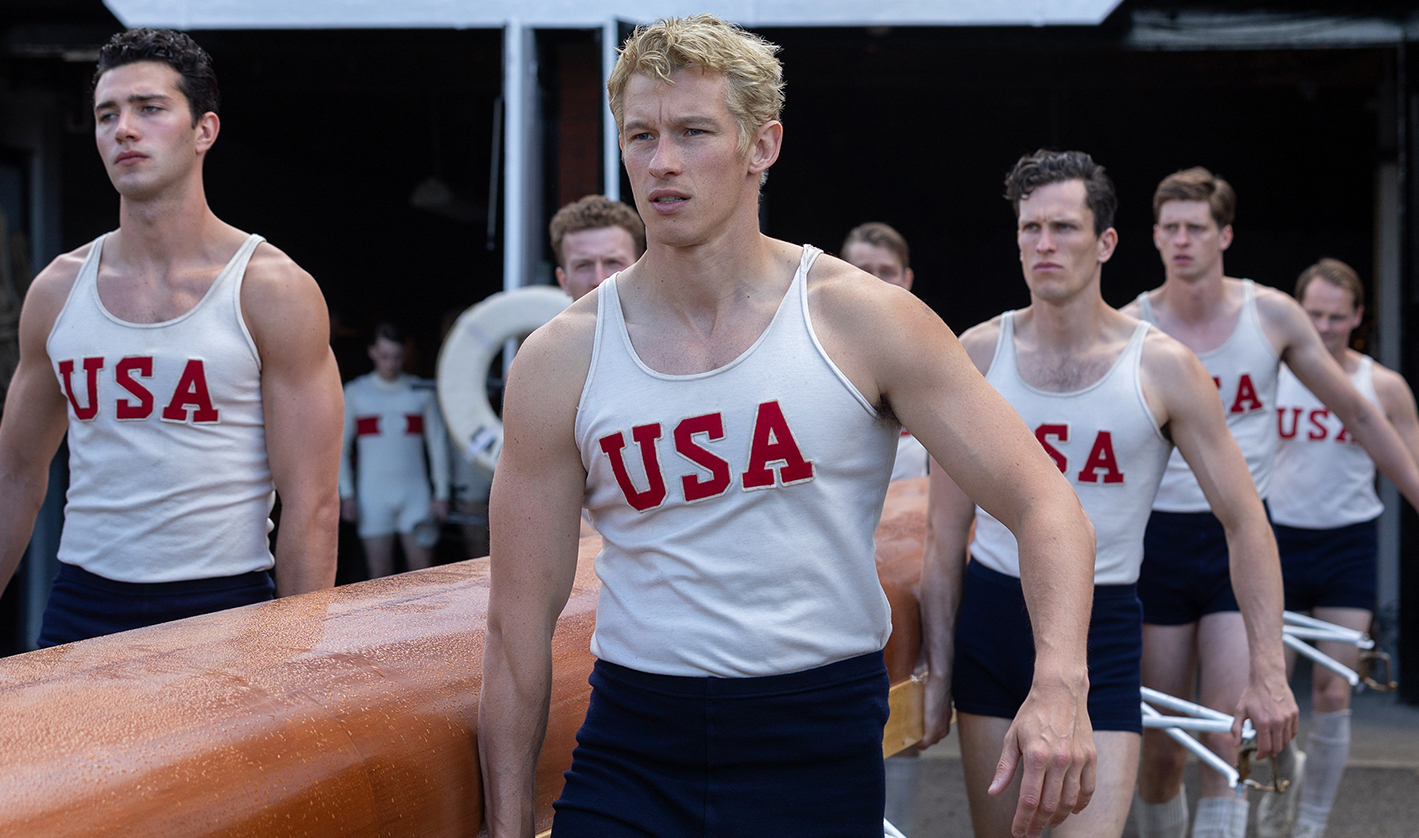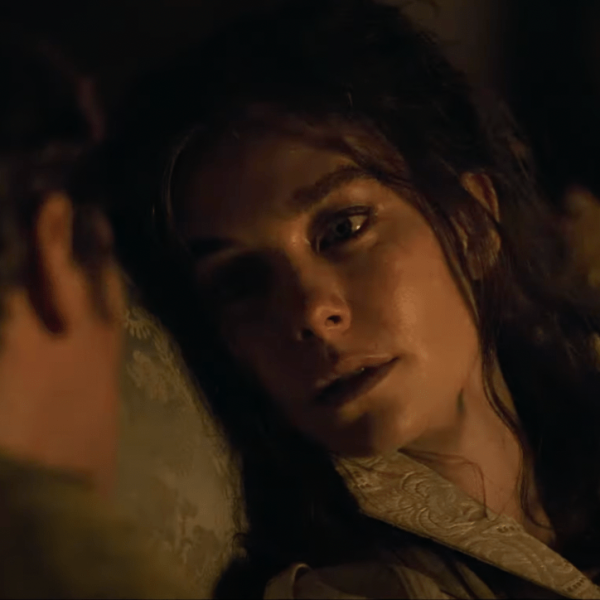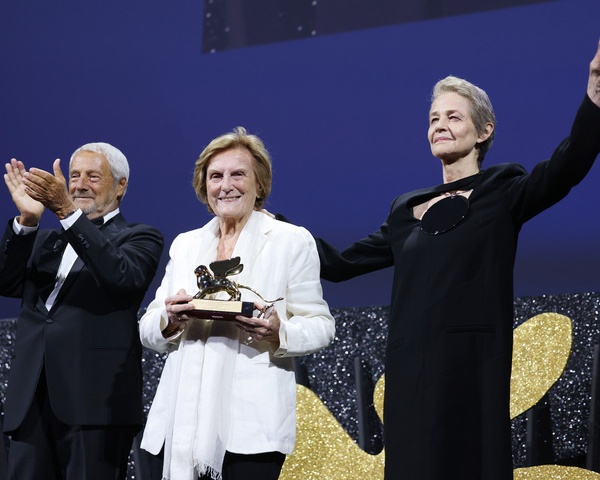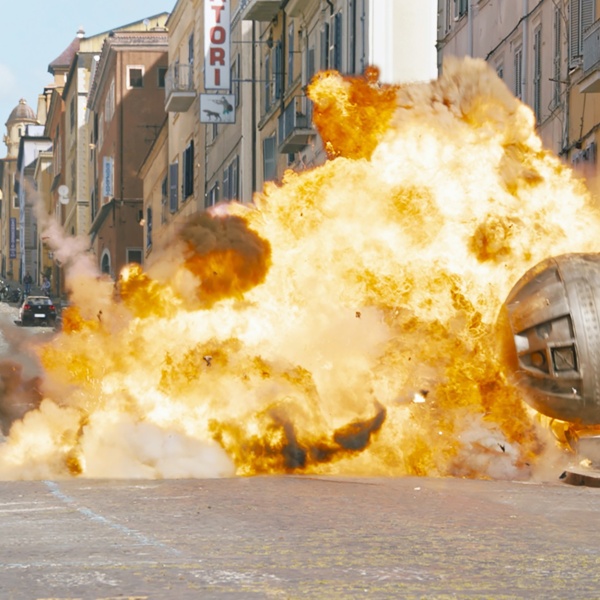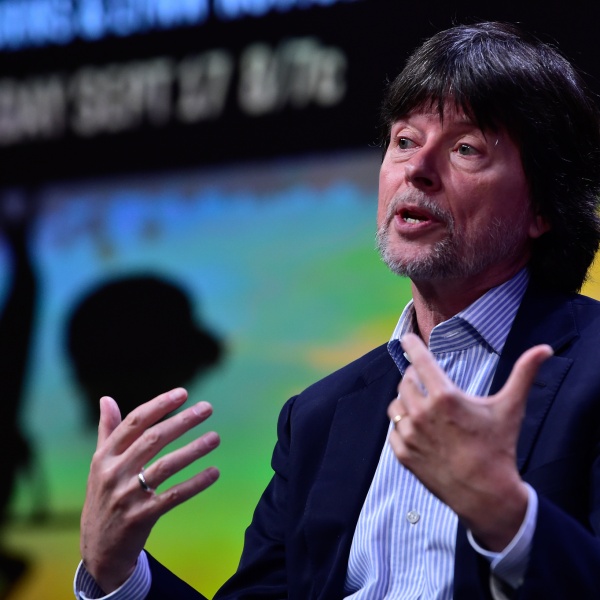You have to admire George Clooney’s unwavering dedication to making the kind of movies that feel like they could’ve been — should’ve been — the fourth-highest-grossing new release of a sleepy weekend in the Clinton era. It takes real star power to keep churning these things out, and rare chutzpah to insist they all play in theaters (the streaming route doesn’t really jive with the old-fashioned spirit of the Nespresso salesman’s directorial career, which helps to explain why the newfangled sci-fi thriller he made for Netflix was one of the most glaring missteps in a filmography that usually tends to shuffle forward with both feet on the ground).
Indeed, Clooney’s side hustle might seem arrogant if the films themselves weren’t so humble and unassuming. Besotted with a vision of Hollywood that was already gone when he got there, the guy has always been a living anachronism who just keeps turning the clock back 35 years until he finally runs out of time. That used to mean channeling the spirit of Dean Martin. Now it means trying to bring Jerry Goldsmith back from the dead.
The stodgiest entry in a dad-core filmography that includes a screwball comedy about American football in the 1920s and a ’70s-set coming-of-age drama about a dive bar owned by Ben Affleck, “The Boys in the Boat” would be the most old-fashioned movie of the year even if the year were 1994. For at least the first half of Clooney’s latest movie, the comfort food of it all proves to be part of its gently stirring charm, stale as it might be.
Adapted from Daniel James Brown’s 2013 book of the same name, this historical sports drama about the scrappy — but strapping — underdogs who rowed for the United States crew team at the 1936 Olympic Games in Berlin is so comfortably down the middle that it makes “Rudy” seem like the work of Sergei Eisenstein by comparison.
It starts, of course, with a “Saving Private Ryan”-esque framing device in which an old man sits by the water and (proverbially) shakes his fists at the speedboats whizzing by the dock as Alexandre Desplat’s twinkly score takes us back to a more honest time some four decades earlier. It was a time before America started fighting its way out of the Great Depression; a time when men were all named Joe, and born with the pecs needed to strain a pair of suspenders even though they all lived on a diet of soot and internalized despair.
Our Joe is Joe Rantz, he’s played by the great British actor Callum Turner with Brooklynese grit and a mop of blond hair, and he’s going to be kicked out of the University of Washington if he can’t scrounge up a few extra bucks. His parents have left him to fend for himself and there isn’t enough work at Seattle’s factories to go around, so Joe — “Hobo Joe” as he’s referred to at one point — decides to try out for the crew team in a last-ditch effort to feed himself for the night, let alone salvage his hopes for a secondary education. They pay.
There are only eight spots in the JV boat, however, and college rowing coach Al Ulbrickson (a hard-nosed but sensitive Joel Edgerton) makes it mighty clear that anyone who hopes to earn one of them is going to have to survive the most brutal training montage that Clooney can muster. And wouldn’t you know it, the star of the movie somehow manages to defy the odds and do just that.
Joe is joined by several other young bucks, all of whom presumably have their own names even if they all exude the same good-natured greaseball energy (one of them is a weird introvert with slicked-back hair, one of them is a mouthy coxswain with slicked-back hair, etc.). It’s strange — and deflating — that Mark L. Smith’s paint-by-numbers screenplay does so little to detail the bond that develops between these boys, as their success on the water is repeatedly credited to an alchemy that the varsity team above them failed to muster.
Then again, Clooney’s film is less interested in individual heroics or human beings than it is the idea of a downtrodden country pulling itself up by its bootstraps; if the crew of the Husky Clipper rows as one instead of eight, that’s only because “The Boys in the Boat” grinds them into generic underdogs whose only job is to personify an underdog nation. There’s no denying that Joe and his pals can do that better than any of the other crews they beat out for their Olympic berth (“it’s old money vs. no money at all!” a radio announcer yaps with excitement as the boys speed ahead of boats from Columbia and Yale), and the improbability of their success is ratcheted up a few extra notches when the ragtag American team goes stride-for-stride with the Aryan Ubermenschen the Nazis float against them.
If the cheesiness of the boys’ encounter with Jesse Owens doesn’t make your eyes roll out of their sockets, the sight of an outraged Adolf Hitler sitting in the stands and launching spittle out of his mouth with every dip of Joe’s oars surely will.
That kind of syrupy hokum is par for the course in a movie that unfolds like an A.I. rendering of apolitical patriotism; a movie that pads out its runtime with a romantic subplot that not even Joe seems to care about, and elides any character-driven conflict in favor of instantly solved financial crises — the evil cabal behind America’s rowing program tries to nickel-and-dime Joe’s crew out of their Olympic dreams — and sudden illnesses that end up not having any impact on the story. For such a pure crystallization of neoliberal cornstarch, it’s ironic that “The Boys in the Boat” should be the rare mainstream film prosaic enough to compete with the artless morality porn of faith-based Christian fare like the Zachary Levi vehicle “American Underdog.” Clooney worships at a different church, but his movie’s we’re all in the same boat dogma is almost as hard to swallow despite its secularism.
Be that as it may, Zachary Levi is no Callum Turner, and the Walmart where Andrew and Jon Erwin presumably bought all the set dressing for “American Underdog” is no match for what production designer Kalina Ivanov brings to the table in a handsomely furnished period drama co-produced by MGM. Which is to say that “The Boys in the Boat” — for all its focus on college kids without a pot to piss in — gets a massive boost from the pedigree behind it.
Turner is a compelling screen presence with a face made for wartime dramas (as John Boorman’s “Queen and Country” made clear), Edgerton’s natural predisposition for tough love makes him a perfect foil in just about any sports movie (as “Warrior” fans will never forget), and the water these underdeveloped characters are forced to tread is well-detailed even though it’s only an inch deep. Clooney delights in period details, like the logistics of a true photo finish, or the “Fury Road”-esque megaphones the coxswains wear welded to their mouths, and these flourishes lend enough credence to the drama around them that it’s hard not to root and holler along with the boys as they prove the haters wrong on both sides of the Atlantic.
“Winners make our own breaks in life,” Edgerton tells his motley crew of muscle-bound college boys. If Joe could’ve seen the movie that George Clooney eventually got to make about him, it would’ve been that much easier to take his coach’s words to heart.
Grade: C
Amazon MGM Studios will release “The Boys in the Boat” in theaters on Monday, December 25.
